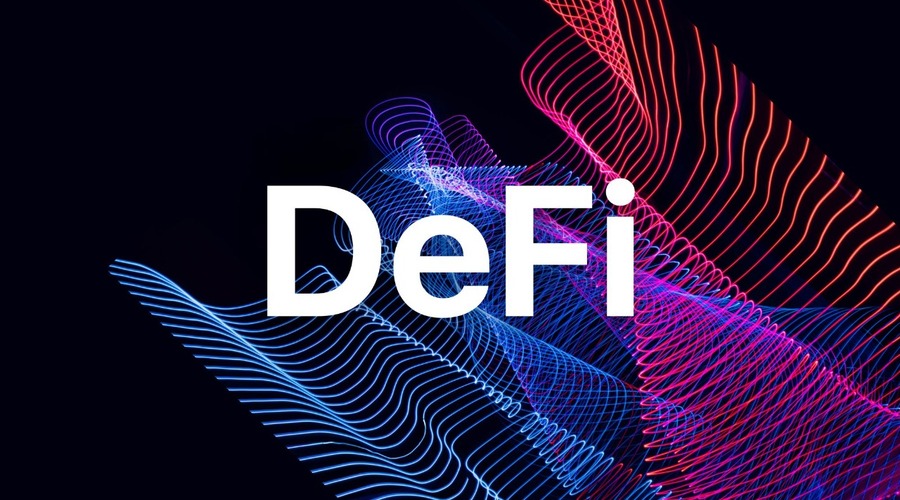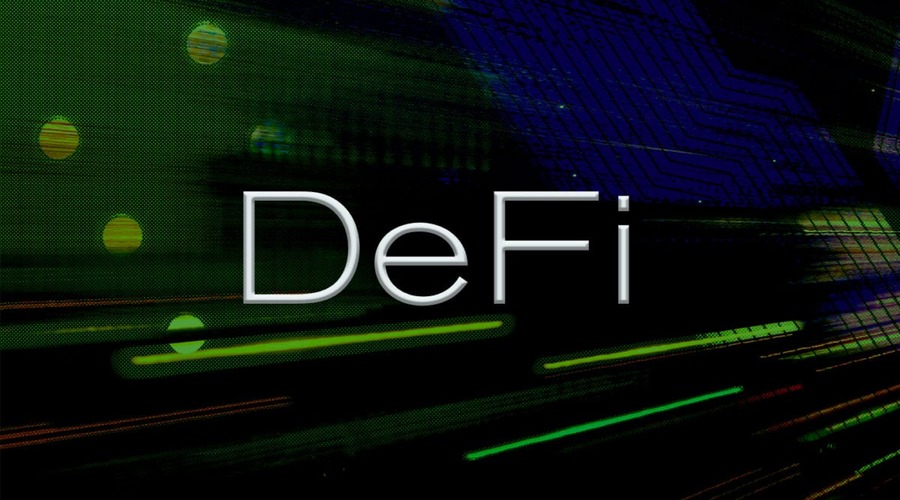
Regulatory Challenges and Security Considerations in DeFi
The decentralized finance (DeFi) ecosystem has witnessed a rapid rise in popularity, with a surge in the number of projects and users participating in this innovative financial landscape. However, with the growth of DeFi, there come unique challenges and considerations related to regulation and security. In this article, we will explore the regulatory challenges faced by the decentralized finance industry and delve into the security considerations that must be addressed to ensure a robust and trustworthy ecosystem.
Introduction to DeFi
DeFi, short for decentralized finance, refers to a financial system built on blockchain technology that aims to provide open, permissionless, and transparent financial services to anyone with an internet connection. It eliminates intermediaries such as banks and brokers, allowing users to access financial products and services directly. DeFi platforms enable activities such as lending, borrowing, trading, and yield farming, all powered by smart contracts.
The explosive growth of the DeFi industry has raised concerns among regulators worldwide. As decentralized finance operates outside the traditional financial system, there is a lack of established regulatory frameworks governing its operations. The absence of clear guidelines and oversight creates uncertainty for industry participants and makes it difficult for regulators to monitor and control potential risks.
Regulatory Challenges in DeFi
- Lack of regulatory framework: DeFi operates in a regulatory gray area, as existing financial regulations are not tailored to address the unique characteristics of decentralized finance. The absence of clear guidelines and oversight creates uncertainty for industry participants and makes it difficult for regulators to monitor and control potential risks.
- Jurisdictional issues: DeFi platforms are accessible globally, transcending geographical boundaries. This poses challenges for regulators in determining jurisdiction and enforcing regulations. The decentralized nature of decentralized finance further complicates matters, as there is no central authority to regulate or govern the ecosystem.
- Compliance with existing regulations: DeFi projects often struggle to comply with traditional financial regulations due to the fundamental differences in their operational models. Compliance requirements such as Know Your Customer (KYC) and Anti-Money Laundering (AML) pose challenges in a decentralized ecosystem where anonymity and privacy are highly valued.
- Regulatory concerns regarding money laundering and fraud: The pseudonymous nature of DeFi transactions raises concerns about money laundering and fraudulent activities. The lack of proper identification and verification mechanisms makes it challenging to prevent illicit activities within the decentralized finance ecosystem. Regulators are working to strike a balance between privacy and the need to prevent financial crimes.
- Fragmented regulatory landscape: The regulatory landscape for DeFi is highly fragmented, with different countries adopting varied approaches. Some jurisdictions embrace innovation and actively seek to attract decentralized finance projects, while others express caution and opt for stricter regulations. This fragmentation adds complexity and ambiguity to the regulatory environment.
- Cross-border regulatory coordination: DeFi operates on a global scale, transcending geographical boundaries. As a result, coordinating regulatory efforts across different jurisdictions becomes a complex task. Regulators face the challenge of harmonizing their approaches to ensure consistent and effective regulation of decentralized finance while considering the unique characteristics of each jurisdiction.
- Addressing investor protection: DeFi’s open and decentralized nature poses challenges to investor protection. Unlike traditional financial systems, decentralized finance does not have intermediaries that provide safeguards against fraud, scams, or faulty smart contracts. Regulators must explore mechanisms to ensure that investors have access to accurate information, transparent disclosures, and avenues for redress in case of disputes.
Security Considerations in DeFi

- Smart contract vulnerabilities: Smart contracts, the building blocks of decentralized finance applications, are prone to bugs and vulnerabilities. Flaws in smart contracts can be exploited by malicious actors to siphon funds or disrupt the functioning of the platform. Comprehensive smart contract auditing and security practices are crucial to mitigate these risks. Developers must undergo thorough code reviews and engage professional auditors to identify and fix vulnerabilities.
- Hacking and exploits: DeFi platforms often become attractive targets for hackers due to the substantial amounts of funds locked within them. Recent high-profile hacks and exploits have highlighted the security vulnerabilities in decentralized finance protocols. Industry participants must employ robust security measures and conduct regular audits to safeguard user assets. The use of multi-signature wallets, hardware wallets, and secure key management practices can enhance the security of user funds.
- Risks associated with decentralized exchanges: Decentralized exchanges (DEXs) play a vital role in the DeFi ecosystem by facilitating peer-to-peer trading. However, the absence of centralized order books and custody services introduces unique security risks. Measures such as decentralized order matching and custody solutions are necessary to enhance the security of DEXs. It is crucial for users to verify the security measures implemented by DEXs before engaging in transactions.
- Oracle vulnerabilities: DeFi applications often rely on oracles to fetch external data for execution. However, oracles can be a weak link in the security of decentralized finance systems. Manipulation of oracle data can lead to incorrect execution of smart contracts, resulting in financial losses. Developers must carefully select reputable and reliable oracles and implement mechanisms to validate and verify the accuracy of the data obtained.
- Mitigating security risks in DeFi: To address the security challenges in decentralized finance, various solutions are being developed. These include insurance protocols to cover potential losses, decentralized identity systems to improve user verification, and bug bounty programs to incentivize the discovery of vulnerabilities. Ongoing research and collaboration between developers, auditors, and the community are essential to bolster the security of DeFi platforms.
- Front-running and arbitrage exploits: DeFi’s transparent and permissionless nature opens the door to front-running and arbitrage exploits. Front-running occurs when malicious actors exploit time delays in transactions to gain an unfair advantage, while arbitrage exploits involve profiting from price discrepancies across different platforms. Implementing mechanisms to minimize these risks, such as optimizing transaction ordering algorithms and reducing latency, is crucial to protect the integrity of decentralized finance markets.
- Social engineering and phishing attacks: As with any digital ecosystem, DeFi is susceptible to social engineering and phishing attacks that target users’ sensitive information or funds. These attacks often involve fraudulent websites, impersonation, or misleading communications. Educating users about best security practices, promoting multi-factor authentication, and developing robust identity verification protocols can mitigate these risks.
Balancing Regulation and Innovation in DeFi
Regulatory frameworks should be designed to foster innovation and growth in the DeFi ecosystem while ensuring financial stability, protecting investors, and mitigating risks. It is essential to adopt a forward-thinking approach that enables regulators to keep pace with technological advancements and adapt regulations accordingly. This may involve creating specialized regulatory sandboxes, conducting pilot programs, and engaging in continuous dialogue with industry stakeholders.
- Regulatory sandboxes: Regulatory sandboxes provide a controlled environment for innovators to test and deploy new technologies, products, and services. These sandboxes allow regulators to closely monitor and understand the risks associated with emerging technologies like DeFi while providing innovators with guidance and support. Sandboxes offer an opportunity to strike a balance between regulation and innovation by facilitating collaboration and fostering a deeper understanding of the technology.
- Proportional regulation: Proportional regulation involves tailoring regulatory requirements based on the size, complexity, and risks associated with different DeFi projects. Applying a one-size-fits-all approach to regulation may stifle innovation and place unnecessary burdens on smaller projects. By adopting proportional regulation, regulators can ensure that compliance measures are appropriate and commensurate with the risks posed by each project.
- Engagement with industry stakeholders: To effectively regulate DeFi, regulators must engage in ongoing dialogue with industry stakeholders. This engagement allows regulators to stay informed about emerging trends, technological advancements, and potential risks. By collaborating with industry experts, regulators can gain valuable insights and develop regulations that strike the right balance between innovation, investor protection, and systemic stability.
- Global regulatory cooperation: DeFi operates in a global landscape, transcending national boundaries. To address regulatory challenges effectively, regulators need to establish channels for international cooperation and coordination. This includes sharing best practices, harmonizing regulatory approaches, and collaborating on cross-border investigations. Global regulatory cooperation promotes consistency, reduces regulatory arbitrage, and enhances the overall effectiveness of regulatory frameworks.
Conclusion
The rise of decentralized finance brings both regulatory challenges and security considerations. DeFi operates in a regulatory gray area, and addressing the unique challenges it poses requires collaborative efforts from regulators, developers, and industry participants. Striking the right balance between regulation and innovation is essential to foster a trustworthy and secure DeFi ecosystem. With concerted efforts, decentralized finance has the potential to revolutionize traditional finance and provide inclusive financial services to a global audience.
FAQs
1. Is DeFi regulated?
At present, DeFi operates in a regulatory gray area with no specific regulations governing its operations. However, regulators worldwide are actively exploring ways to address the regulatory challenges posed by DeFi.
2. Are DeFi platforms secure?
DeFi platforms face security risks, including smart contract vulnerabilities, hacking attempts, and Oracle vulnerabilities. However, developers are continuously working on improving security measures, conducting audits, and implementing best practices to mitigate these risks.
3. Can DeFi be used for money laundering?
DeFi’s pseudonymous nature raises concerns about potential money laundering activities. However, industry participants are developing solutions such as decentralized identity systems to enhance transparency and prevent illicit activities. It is important for regulators to strike a balance between privacy and anti-money laundering efforts.
4. How can regulators encourage innovation in DeFi?
Regulators can foster innovation in DeFi by providing regulatory clarity, establishing sandboxes for experimentation, and collaborating with industry participants to develop frameworks that balance innovation and investor protection. An environment that encourages innovation while addressing risks is crucial for the growth of DeFi.
5. How can users protect themselves in DeFi?
Users can protect themselves in DeFi by conducting thorough research before using a platform, implementing robust security practices such as using hardware wallets and multi-signature wallets and being cautious of potential scams or phishing attempts. Staying informed about the latest security best practices and staying vigilant is key to protecting user funds.
I’m a professional writer. I have been writing about Cryptocurrencies for more than 2 years now and I consider myself one of the best authors in this field. I am very passionate about this technology and I believe that it will change the world as we know it. If you want to learn more about cryptocurrencies, you should definitely check out my work!


